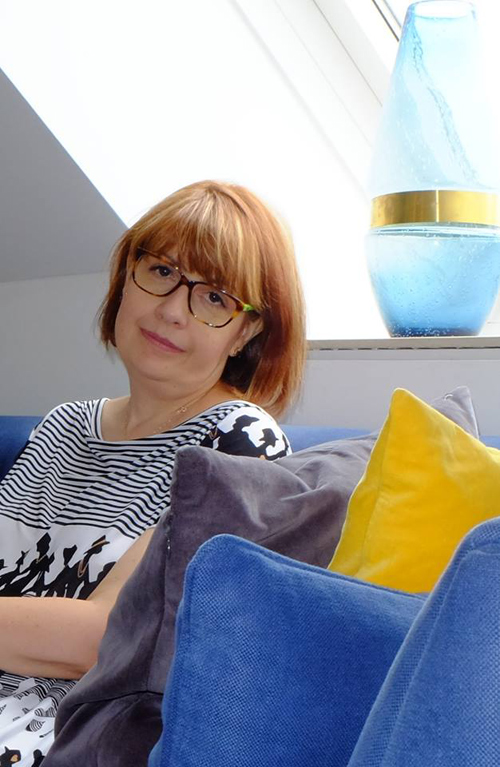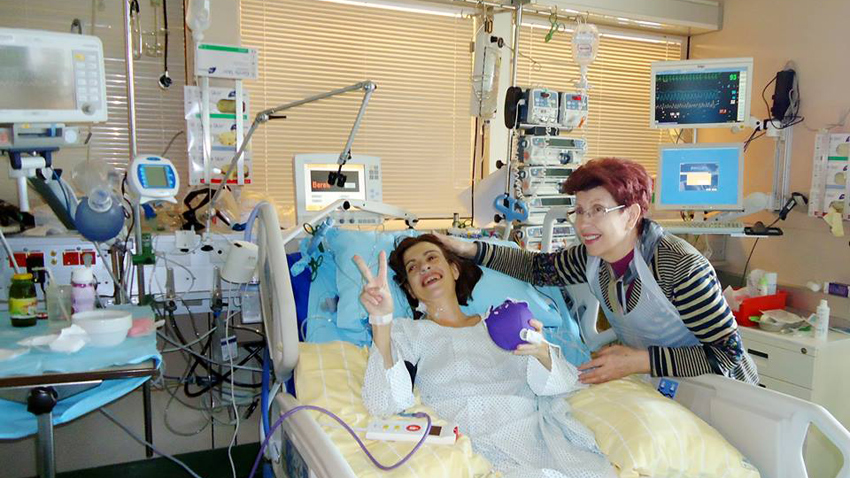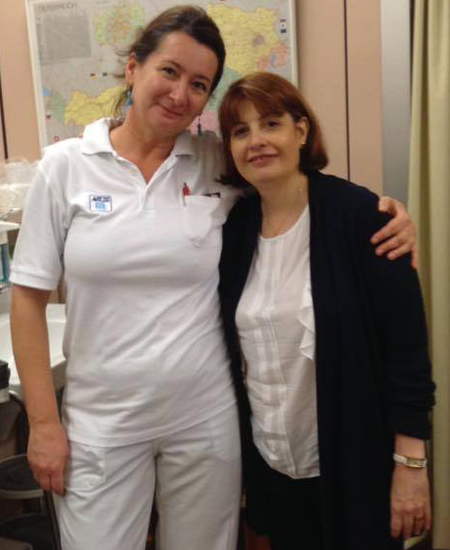 The personal story of Natalia Maeva is exciting and inspiring because of her great courage and will for life. At the same time, her story raises many questions about the situation of the Bulgarian healthcare system. Back in 2009 Natalia was diagnosed with pulmonary arterial hypertension. "At that time the Bulgarian state did not provide adequate therapy and my family had to pay for it," Natalia says.
The personal story of Natalia Maeva is exciting and inspiring because of her great courage and will for life. At the same time, her story raises many questions about the situation of the Bulgarian healthcare system. Back in 2009 Natalia was diagnosed with pulmonary arterial hypertension. "At that time the Bulgarian state did not provide adequate therapy and my family had to pay for it," Natalia says.
Pulmonary hypertension is a rare disease that cannot be treated and only maintenance therapy exists. Over time breathing becomes difficult, movements start causing fatigue. Small arteries in the lungs get narrower and the heart pushes the blood through them with difficulty. In the last stage of the condition, bilateral lung transplantation is required. In 2014 Natalia's condition started worsening. "I always carried oxygen with me. In such a state a person is isolated from society. But I was trying to do other things," Natalia says. She has been actively working for the Bulgarian Society of Patients with Pulmonary Hypertension, helping other people with such a diagnosis. For eleven months she was waiting for a suitable donor. And just when she thought that would not happen, she received the long-waited call. But she was not afraid. "I had already reached a point where I had nothing to lose. It was the only logical step to take." The transplant operation took place at the University Hospital in Vienna. Here's how Natalia describes the emotion to wake up after transplantation:
"This is an amazing experience. You feel like you're flying. But you do not know how to breathe normally, because as you had been sick for so many years, you've lost your normal rhythm of breathing. And you start from the beginning; you actually learn to breathe in and breathe out. It took me about three months."

After the transplant, struggles did not end because “one has to think about the three-month stay in Austria. The Bulgarian state gives you the money for the operation and that’s it. From there on you cover the other expenses. That's why I thank everyone who helped me and continues to do it," Natalia says.
Is it a feat for a Bulgarian patient to receive a transplant?
"For some it is a feat actually, because in order to do this, you have to fight the system. This is not easy at all in Bulgaria. Getting financing, meeting the commission's requirements for treatment abroad – it is hell. When a patient needs a transplant, they do not have time for all this struggle, carrying documents and letters from hospitals around. Every single day is important and here the patient has to make their own path. If they are unable to struggle and are not physically capable of doing all that, they simply die.”
 Transplantation takes place abroad, as there are no conditions to do this in Bulgaria, Natalia points out. She summarizes the priorities of the Bulgarian Society of Patients with Pulmonary Hypertension as follows:
Transplantation takes place abroad, as there are no conditions to do this in Bulgaria, Natalia points out. She summarizes the priorities of the Bulgarian Society of Patients with Pulmonary Hypertension as follows:
"Among our main tasks is the establishment of a post-transplant monitoring center for lung-transplant patients in Bulgaria. We are forced to travel for medical examinations in Austria. This is associated with huge financial resources, as there is no monitoring center here. We are actually currently monitored at the St. Ekaterina University Hospital in Sofia, which is specialized in cardiovascular diseases.”
Today, after all the obstacles, Natalia Maeva makes specific recommendations that would help people with pulmonary hypertension:
"We need to create a national lung transplant program. People in small towns do not know how to win against the system. Clear rules must exist. Patients who are told they need lung transplant also need to know what the next steps are. It is important to have a post-transplant center operating in Bulgaria with doctors trained in Europe. There are transplant patients in Greece, Romania, and Bulgaria. If such a center existed here it would encompass the whole of the Balkans."
English: Alexander Markov
From today, residents of Stara Zagora, young and old, can send their letter to Santa Claus. A letterbox has been set up in the foyer of the city's State Puppet Theatre to collect messages for Father Christmas. The cultural institution guarantees that..
A Christmas tree with Bulgarian decorations has been placed in a central location at the Griffin Museum of Science and Industry in Chicago. For the fifth consecutive year, Bulgarians living in Chicago crafted the lavish decoration of the Bulgarian..
The usurpation of cultural heritage is one of the many inevitable consequences of any military conflict, both historically and today. Until the end of the war in Ukraine, it is impossible to adequately analyse the extent of the damage caused to the..
Two graduates of the Bulgarian School "Saints Cyril and Methodius" in Jordan presented their achievements at an event at their school "Hadi al Muhammadi"..
Radmila Sekerinska from North Macedonia appointed NATO Deputy Secretary General NATO Secretary General Mark Rutte has appointed Radmila Sekerinska..
1000 participants will take part in the first Burgas Half Marathon, which will take place this Sunday, 24 November. The event will bring together..

+359 2 9336 661
